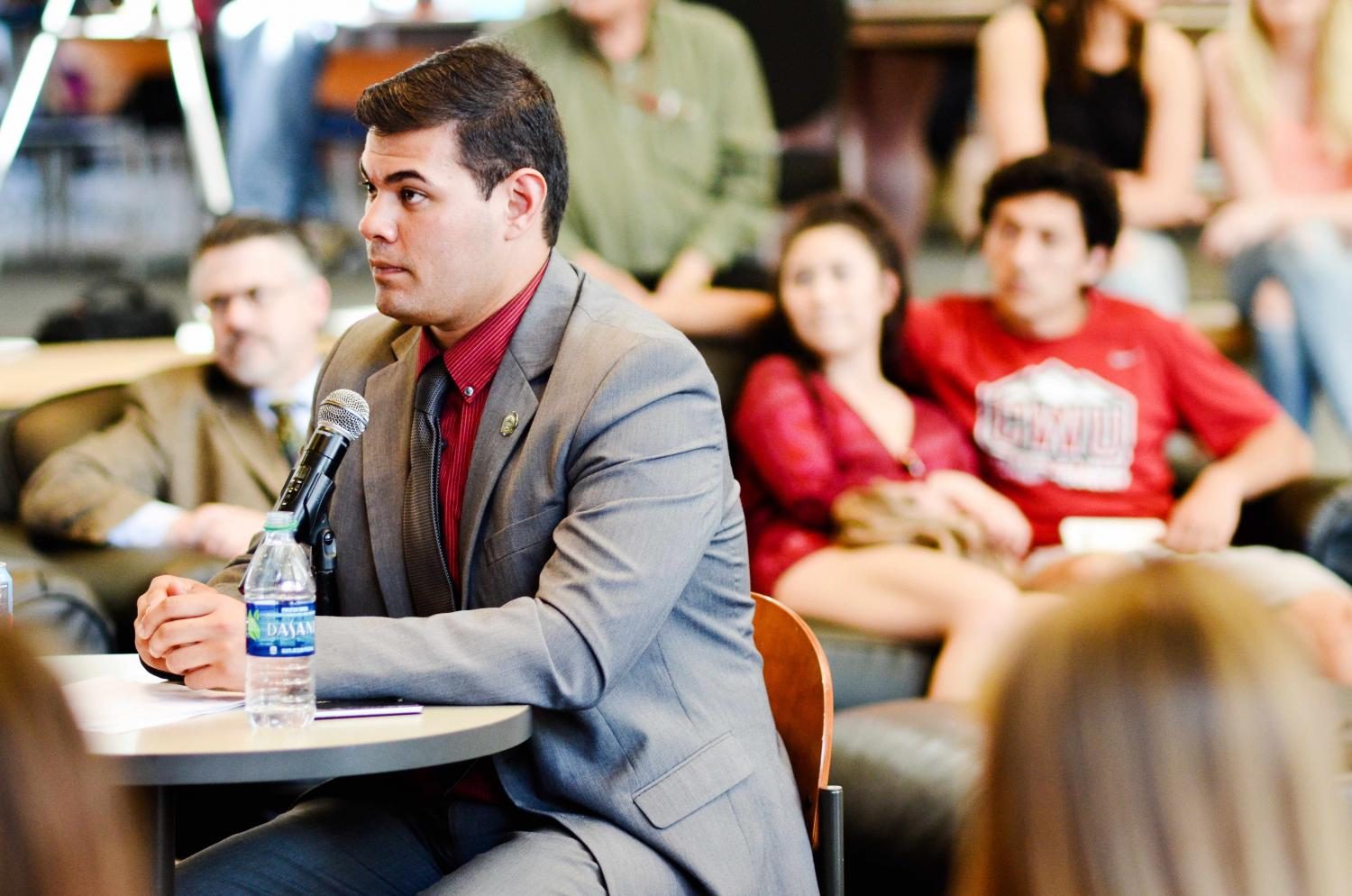ASCWU Elections show importance of voting
Presidential candidate JR Siperly asks questions to state representatives on May 3.
May 25, 2017
elections come to a close, a resounding quote by comedian W.C Fields comes to mind: “I never voted for anybody, I always voted against.”
In such tense political epochs, we often forget the importance of voting and the reason behind why we vote.
The meaning often gets lost in the over-politicized social media commentary and the inability to find the time to better understand the impact of voting for a particular stance. It’s easy to ultimately feel like your vote doesn’t matter.
This is where college elections come in. As far as local elections go, it doesn’t get any more localized than this.
The terms for the candidates will coincide with some of the most important budgeting issues that have ever faced CWU, according to many candidates.
ASCWU Elections Commissioner Tucker Andis has been following the election and mediating the candidates since candidate registration began in late March.
“I’d say that it’s important that everybody has a say in who governs them,” Andis said. “We’re a growing school… therefore I believe that funding is very important at this time. Where that funding is allocated will have effects on the whole student population, especially in regards to clubs and organizations.”
Andis’ position on the Elections Commissions requires him and his colleagues to assess CWU’s current ability to hold an election and then build rules and regulations around those resources.
It’s a position that he feels necessitates great ethical analysis and a sense of fairness that would elude the average observer.
Associate Professor of History Brian Carroll realizes the importance of voting.
He said that no matter the context throughout history, voting is always an important matter and is a necessity for a truly free democracy.
He believes that it builds a cohesive bond between people in communities that is important for democracy.
Voting was also important to Carroll’s grandfather as well. Carroll’s grandfather immigrated from a colony in Ireland to the United States around 1890.
It took Carroll’s grandfather five years to obtain his citizenship. The colony in Northern Ireland that he fled from was controlled by the British, so the Irish who inhabited the area at the time did not have any voting rights or say in the elections there.
“It was right on the edge of [around] the Republic of Ireland or Northern Ireland and so he came to the United States, got his citizenship, he was able to vote and that was a big deal for him,” Carroll said.
Carroll said that his grandfather was so proud of his right to vote in the United States, that he kept all his poll receipts with his citizenship papers. Carroll said he still has these papers.
Carroll hopes that students will find the time to vote on the issues of the ASCWU elections.
He views the offices as having a serious, substantial impact on not only the university but also the community.
Students might not take them very seriously, but they have the potential to have serious repercussions, both positively and negatively, Carroll said.
The importance of voting is apparent. Where national scale elections might seem to make our vote feel insignificant, local polling can lead to a more collectively centric and homogenous community. We can underestimate local voting and overestimate national elections, Carroll said.
Results of the ASCWU elections will be available immediately after elections are over. They will be finalized on Tuesday, May 30.
Two positions have only one candidate, executive vice president and vice president of clubs and organizations, with Alex Horning and Stan Southern running for the positions respectively.



